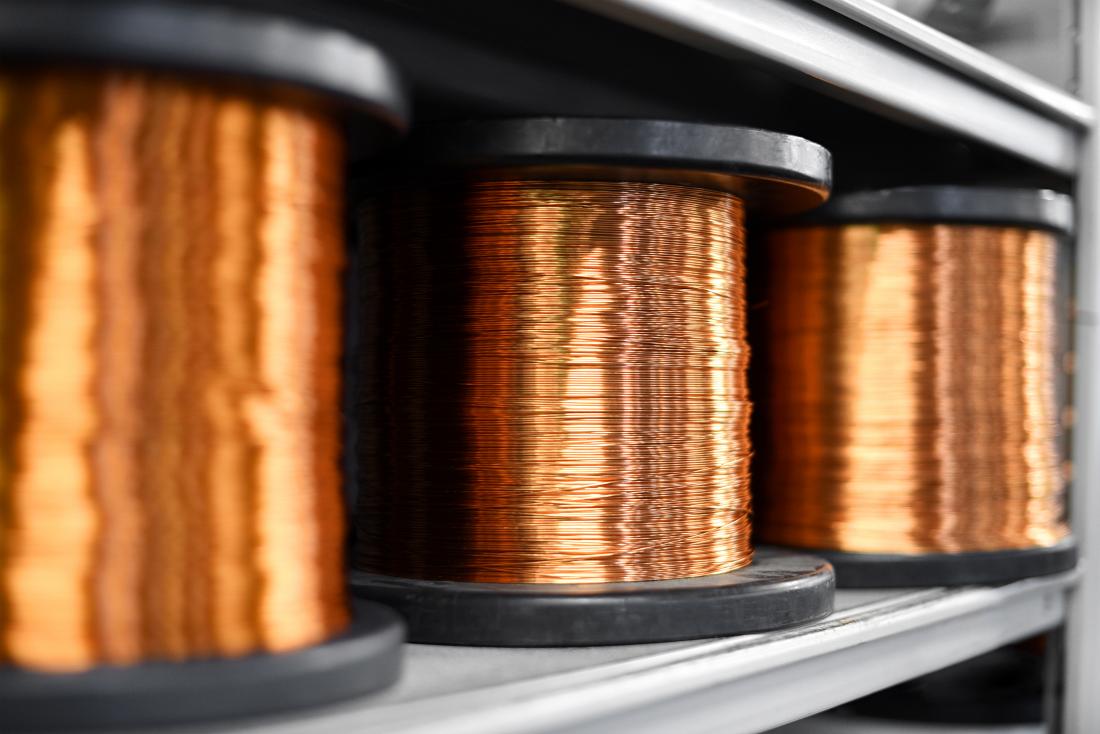Just How Copper Products Contribute to Lasting Practices in Different Fields
Copper products are progressively identified for their significant payments to lasting practices throughout multiple sectors, driven by their fundamental residential properties such as longevity, efficiency, and recyclability. In renewable resource systems, as an example, copper improves the capability of solar and wind technologies, while its application in building and construction reduces waste through longevity. The product's antimicrobial qualities provide encouraging benefits in medical care settings. As industries look for to embrace more lasting methods, the function of copper can verify critical in attaining ecological goals. What effects might this have for future advancements in sustainability?
Copper in Renewable Energy
Copper plays a vital role in the improvement of eco-friendly energy technologies, acting as a vital conductor in numerous applications. Its exceptional electrical conductivity and resistance to rust make it a suitable material for electrical wiring, which is necessary in solar panels, wind turbines, and energy storage systems. In solar photovoltaic systems, copper is used in the affiliations and circuitry, making it possible for reliable power conversion from sunlight to power.
In wind energy, copper is integral to the generators and transformers that transform kinetic power right into electrical power, making sure ideal performance and integrity. Additionally, the demand for electric lorries (EVs) is enhancing, with copper being a vital element in batteries, motors, and billing facilities. The shift to EVs dramatically improves the demand for copper, as these lorries typically use 4 times a lot more copper than traditional inner combustion engine vehicles.
As the world seeks to reduce climate adjustment and shift to lasting power resources, copper's role becomes progressively important. The material not just improves the efficiency and longevity of eco-friendly energy systems yet likewise supports the broader objective of lowering greenhouse gas emissions and advertising a sustainable future.
Eco-Friendly Building Materials
In recent years, there has actually been a noteworthy shift towards the fostering of green building materials in response to growing environmental concerns. This change is motivated by the requirement for lasting alternatives that minimize ecological footprints while keeping structural stability and aesthetic charm.
Copper, recognized for its longevity and recyclability, has emerged as a vital gamer in this sector. It can be made use of in roof, plumbing, and electrical systems, adding to energy effectiveness and lowering waste. Copper's longevity indicates less replacements over time, further enhancing its sustainability profile.
Additionally, materials such as bamboo, redeemed wood, and reused steel are getting popularity. These options not just supply decreased environmental effect however likewise advertise resource preservation. As building codes progressively stress sustainability, builders and designers are incorporating these products into their tasks, fostering development in style.
The increasing adoption of environment-friendly construction products reflects a wider dedication to sustainability in the constructed atmosphere. By focusing on these products, the building and construction sector can considerably lower its carbon impact, straighten with regulative standards, and support a healthier environment for future generations. This fad marks a crucial action towards a much more sustainable future in building and construction.
Copper's Duty in Health care
Recent studies have highlighted the considerable function of copper in health care settings, specifically as a result of its antimicrobial homes. Copper surfaces have been shown to lower the visibility of pathogens, including germs and infections, by as much as 99.9% within a short period. This exceptional efficiency makes copper an indispensable material for high-touch surface areas in medical facilities, such as doorknobs, bed rails, and IV posts, consequently adding to enhanced infection control procedures.
Along with its straight antimicrobial results, copper likewise plays a role in the wider context of health center sustainability (Copper Products). By integrating copper right into medical equipment and furnishings, health care centers can decrease the occurrence of healthcare-associated infections (HAIs), which not just enhances individual end results yet additionally lowers the costs related to extended healthcare facility remains and additional treatments
In addition, copper's longevity and recyclability straighten with sustainable techniques, enabling responsible resource monitoring. As medical care systems significantly prioritize both client safety and ecological stewardship, the integration of copper products is becoming much more prevalent. This double benefit highlights copper's crucial payment to a much healthier, safer, and much more lasting healthcare setting.
Sustainability in Transportation

Furthermore, copper's longevity and corrosion resistance add to the durability of transportation framework (Copper Products). In rail systems, as an example, copper components improve the reliability and performance of signaling and power systems, important for reducing hold-ups and power consumption. Furthermore, copper's role in renewable resource systems, such as solar and wind, sustains sustainable transport remedies by supplying tidy power for electrical transportation options
Investments in copper modern technology not only foster sustainability but likewise boost financial development and work development in eco-friendly browse this site sectors. As industries aim to satisfy rigorous ecological guidelines, the application of copper items in transportation arises as a critical strategy in accomplishing sustainability objectives and advertising a cleaner, extra reliable future.
Copper and Circular Economic Situation
As the world significantly welcomes sustainability, the function of copper in the circular economy ends up being ever a lot more considerable. right here Copper's intrinsic residential properties-- such as its recyclability, conductivity, and durability-- setting it as a key material in a resource-efficient economic situation. The round economy aims to minimize waste and make the most of resource usage with recycling and reusing materials, and copper master this regard.
The steel can be recycled forever without loss of high quality, making it an ideal prospect for sustainable practices throughout numerous industries, including construction, electronic devices, and sustainable power. By recuperating and reprocessing copper from end-of-life products, sectors can significantly reduce the demand for virgin products, thereby decreasing environmental impacts associated with mining and processing.
Moreover, the combination of copper into circular economy frameworks not just conserves sources yet additionally fosters advancement. Businesses that prioritize copper reusing add to a much more lasting supply chain, improving their competition while straightening with regulative needs and consumer preferences for eco accountable items.
Conclusion
To conclude, copper products dramatically add to lasting techniques across numerous markets. Their vital function in enhancing renewable power technologies, promoting eco-friendly building materials, supporting infection control in health care, facilitating sustainable transport, and embodying the concepts of a round economic situation emphasizes the adaptability and importance of copper. By integrating copper right into numerous applications, sectors can attain better effectiveness, reduce environmental effect, and straighten with international sustainability goals, ultimately fostering a much more lasting future.

Copper's exceptional conductivity makes it a favored product in electric car (EV) systems, boosting energy efficiency and performance. Furthermore, copper's function in eco-friendly power systems, such as solar and wind, supports lasting transport options by giving clean energy for electrical transit options.
Their necessary function in improving eco-friendly power modern technologies, promoting environment-friendly building materials, supporting infection control in health care, promoting lasting transportation, and embodying the concepts of a circular economy highlights the adaptability and importance of copper.